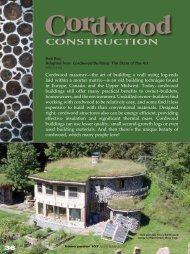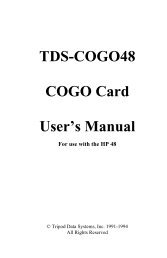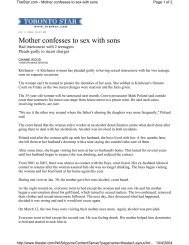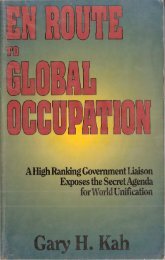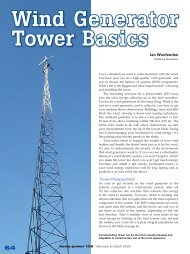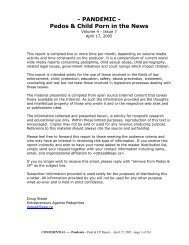G. Edward Griffin - The Fearful Master - PDF Archive
G. Edward Griffin - The Fearful Master - PDF Archive
G. Edward Griffin - The Fearful Master - PDF Archive
You also want an ePaper? Increase the reach of your titles
YUMPU automatically turns print PDFs into web optimized ePapers that Google loves.
Government is not reason; it is not eloquence; it is force! Like fire, it is a dangerous<br />
servant and a fearful master.<br />
George Washington<br />
CHAPTER SIXTEEN: THE DANGEROUS SERVANT<br />
In 1816 Thomas Jefferson wrote:<br />
<strong>The</strong> way to have good and safe government is not to trust it all to one,<br />
but to divide it among the many, distributing to everyone exactly the<br />
functions he is competent to handle. Let the national Government be<br />
entrusted with the defense of the nation and its foreign and federal<br />
relations; the state Governments with the civil rights, laws, police and<br />
administration of what concerns the state generally; the counties with<br />
the local concerns of the counties; and each ward direct the interests<br />
within itself. It is by dividing and subdividing these republics, from the<br />
great national one down through all its subordinations . . . that all will be<br />
done for the best. What has destroyed liberty and the rights of man in<br />
every government which has ever existed under the sun? <strong>The</strong><br />
generalizing and concentrating all cares and powers into one body, no<br />
matter whether the autocrats of Russia or France or of the aristocrats of<br />
a Venetian senate. 1<br />
Sometimes it is said that man cannot be trusted with government of<br />
himself. Can he, then, be trusted with the government of others? Or<br />
have we found angels in the forms of kings to govern him? Let history<br />
answer the question. 2<br />
Indeed, history has answered the question; not only the distant history to which Jefferson<br />
is here referring, but more recent events as well. In the two decades that followed the birth<br />
of this nation, men and women by the hundreds of thousands migrated here from all over<br />
the world, because they knew that here was the land of freedom and opportunity, where a<br />
man could make his own deal with life without being bowed by the oppressive yoke of<br />
government directing his daily life. Carl Schurz was one such immigrant, and his words<br />
written in 1853 serve as monumental tribute to the wisdom of such men as Washington<br />
and Jefferson:<br />
Here in America, you can see daily how little a people needs to be<br />
governed. <strong>The</strong>re are governments, but no masters; there are governors,<br />
but they are only commissioners, agents. What there is here of great<br />
institutions of learning, of churches, of great commercial institutions,<br />
lines of communication, etc., almost always owes its existence, not to<br />
official authority, but to the spontaneous cooperation of private citizens.<br />
Here, you witness the productiveness of freedom. . . . We learn here<br />
how superfluous is the action of governments concerning a multitude of<br />
things in which in Europe it is deemed absolutely indispensable; and<br />
how the freedom to do something awakens the desire to do it. 3


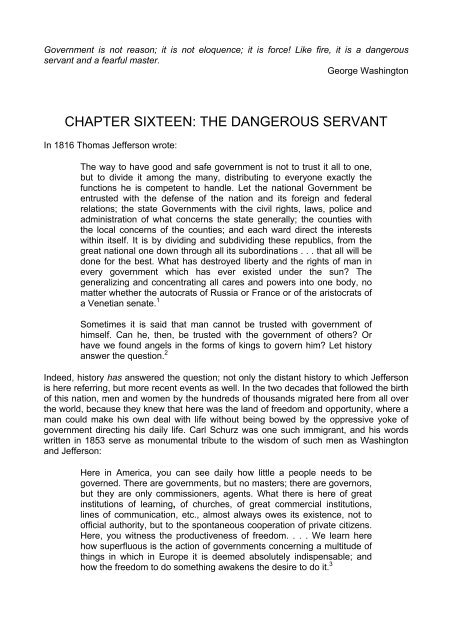
![Robert T McQuaid [rtmq@stn.net] Sent: Friday, October 29, 2004 12 ...](https://img.yumpu.com/51070071/1/190x245/robert-t-mcquaid-rtmqstnnet-sent-friday-october-29-2004-12-.jpg?quality=85)
